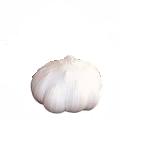- Home
- Natural Remedies
- Coffee and Diabetes Type 1 & 2
Coffee and Diabetes Type 1 & 2
Here we are going to tell if coffee is beneficial to diabetics. But before, take a little rest to enjoy the recall of a nice-smelly ready-made coffee. Mmmmm, really nice, don't you think so?
Now, coming back to our topic. Is coffee consumption good for diabetics or not? Let's discover it together through the scientific research (although some not finished yet:).
It is a well-known fact that drinking coffee, especially when it is decaffeinated, will be associated with a reduced risk of type 2 diabetes. Actually, a report of Archives of Internal Medicine, one of the JAMA/Archives journals on 26th September give a full evidence of this.
In this article, I want to talk about the risk of having diabetes for a coffee drinker and about the effect of coffee and caffeine in blood sugar.
The diabetes risk appears to be very consistent across different ages and body weight. In addition, most researches have found that the more coffee an individual drinks, the lower his/her risk for diabetes. However, it remains unclear whether it is the caffeine or any other ingredient in coffee, which may confer a protective effect.
They also reported how often they consumed a variety of foods and these beverages over the previous year, including regular and decaffeinated coffee.
Based on this information reported in the initial questionnaire, about half of the women (14,224) drank one to two cups of coffee per day; 2,876 drank more than six cups; 5,553 four to five cups; 3,232 less than one cup; and 2,927 none.
Over the following 12 years, 1,417 of the women reported on surveys to be newly diagnosed with type 2 diabetes.
After adjusting the data for some of the other diabetes risk factors, women who drank more than five cups of any type of coffee per day were 21 percent less likely than those who drank no coffee to be diagnosed suffering from diabetes; those who drank more than five cups of decaffeinated coffee per day had a 32 percent reduction in risk compared with those who drank none.
- Overall, caffeine intake did not appear to be much related to diabetes risk, further suggesting that some other ingredient in coffee was also responsible, including Magnesium. As it is richly found in coffee, its presence can explain some of the inverse relation between coffee intake and risk of type 2 diabetes mellitus through known helpful effects on the carbohydrate metabolism according to the authors statement.
- However, the study found no relation between Magnesium and diabetes risk. Other minerals and nutrients found in the coffee bean including compounds known as polyphenols.
These have also been shown to help the body process carbohydrates and antioxidants, which might protect cells in the insulin producing pancreas can contribute to its beneficial effects and needs to be examined in future studies of possible link between coffee and diabetes.
Based on the research that I mention it is not so clear that there are strong links between caffeine and diabetes, but the facts are that we have to consider them and call for further studies.
If you're wondering to find out other foods relationships with diabetes, you can start here.
Written by Dr.Albana Greca Sejdini, Md, MMedSc
Medically reviewed by Dr.Ruden Cakoni, MD, Endocrinologist
References
References
- Coffee consumption and risk of type 2 diabetes
- Coffee consumption and reduced risk of developing type 2 diabetes
- Changes in coffee intake and subsequent risk of type 2 diabetes: three large cohorts of US men and women
- Effects of coffee on type 2 diabetes mellitus
- Coffee, decaffeinated coffee, and tea consumption in relation to incident type 2 diabetes
Explore more herbs.
Diabetes complications Questions or Problems? Get Help Here
This is the place where you can ask a question about any aspect of diabetes complications.
It's free and it's easy to do. Just fill in the form below, then click on "Submit Your Question".














